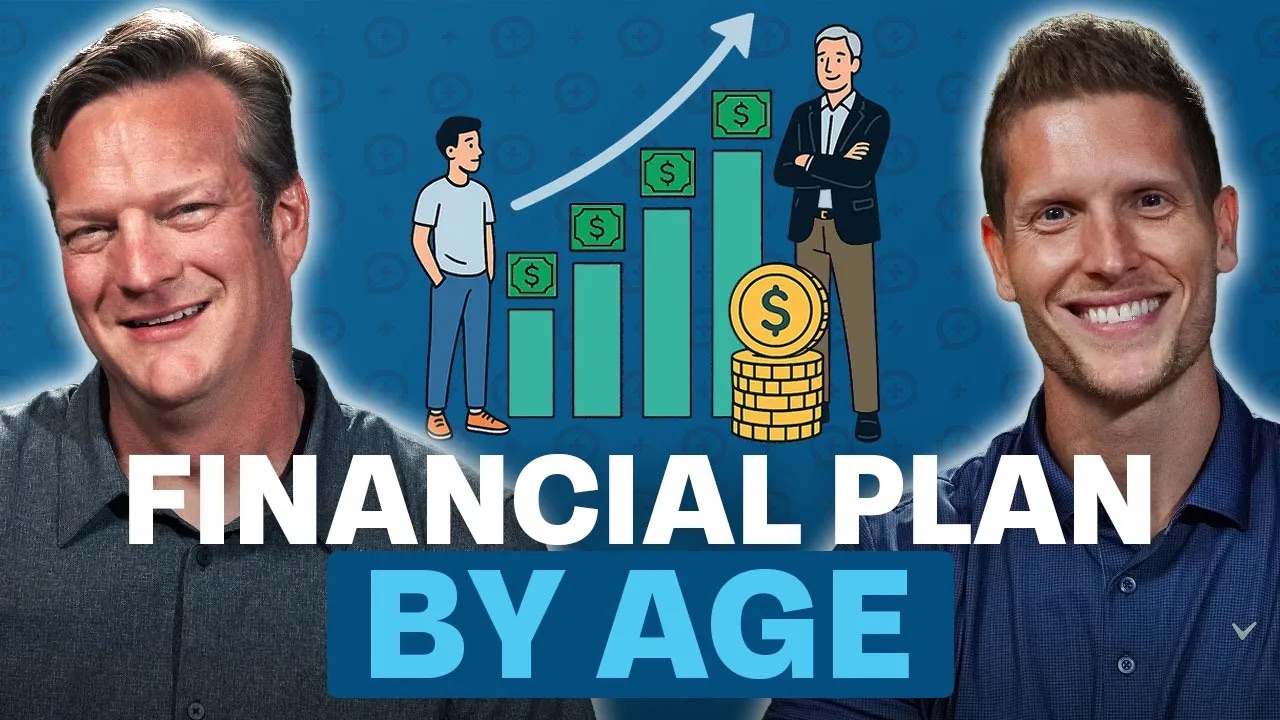Has a question. He says, 'My employer pays all premiums for Cadillac insurance, so I save a lot. But I don't qualify for an HSA. My wife and I also do not qualify for a Roth IRA. So what should we do for step five of the
Financial Order of Operations? Do we skip it?'
So, for those who don't know,
the Financial Order of Operations is nine tried and true steps of what to do with your next dollar. How do I command my Army of dollar bills to do the things I know I want to do? Well, if I get to a step and that step does not apply to me—for instance, high-interest debt—well, if I don't have any high-interest debt, do I skip that? Yeah, absolutely.
So, this question is not where there's a step that's a bad step that Nicholas wants to skip. It's a good step—hey, step five, tax-free Roth and HSA. Well, Nicholas already gave some clues when I said, 'Hey, I'm too—my income is too high, we can't do direct Roth, right?' So, that naturally tells me that they're probably higher-income individuals. Well, if we're higher-income individuals, we can't do Roth.
I have two questions. One, should I potentially do a Roth 401(k)? Well, again, you've got to look at your tax bracket. Our sort of loose rule of thumb here is if you add your marginal federal bracket, your marginal state tax bracket, and it's above 30%, the current-year tax benefit is so valuable you should probably err on the pre-tax side. If you add up your marginal federal and marginal state, and it's below 25%, you should probably err on the Roth 401(k) side. If you're in that 25% to 30%, it gets a little bit more nuanced. You've got to think about it a little bit more.
So, question number one is: Should I do the Roth 401(k)? He said, 'I don't have access to HSA because my employer pays for all my health insurance.' I'm going to argue that's a good thing, right? I mean, HSAs, we love it, we're all for it, it's a great thing. But if your boss is going to pay for all of your health insurance, you know what's better than a tax benefit from HSA? Just absolute free money. Right? So, you kind of can't walk away from that.
So then the question I'd ask is: Is there another method or mechanism for him to establish? I mean, Nicholas is for sure. So, what he's—he's on the path, I can already see it. He's going to go through step five because he doesn't have a lot of tax-free opportunities. He'll get to step six, which is the whole max-out retirement rules—max out retirement means you've got to get to 25% of your gross income and you're going to do that. But then he's going to quickly go to step seven, which is hyper accumulation. And this goes—we recently did a show on the three buckets because it's there when you get to step seven, you start really thinking about, 'Okay, I'm blessed. I make good income. I've maxed out a lot of things. I need to start beginning with the end in mind and thinking about what does the retirement plan look like, or what does my structure look like?' Because it is step seven that I start worrying about: Are you the type of person that you are retirement rich but maybe life poor? Because you took advantage of all the tax benefits, meaning tax savings by attaining traditional contributions, but you can't pay cash for that upgraded car. Because you—you've got some things. That's where the three buckets come in because maybe you'll start looking at after-tax savings, open a brokerage account. You'll look at—you'll have plenty of tax-deferred because it sounds like that's where the majority of the opportunity is. And then you might even look at, 'Hey, yes, I'm in a higher-tax situation, but maybe is there a way for me to do backdoor Roth contributions?' Where you open up a traditional IRA, you make sure you don't have any rollover accounts or SEP accounts or anything else that's got an IRA-type title, except for the inherited IRA—we always give an exception on that—and then you try to figure out if you can do a conversion strategy. Get more money because you are going to want to think about how do I want to approach retirement to where, from an efficiency standpoint, I control how I pull the money out and maximize the tax planning opportunities, because there's some really exciting stuff there.
But Nicholas, it sounds like you're in a great situation, and it also—look, you can go to learn.moneyguy.com because this isn't in-the-weeds
Financial Order of Operations question. But you're also quickly probably approaching—remember, the abundance cycle is learn, apply, grow, reach a level of success that you start having these even though you might have a thought, you started with a simple financial plan. But now, you've got a lot of these complex in-the-weeds questions. That's where the abundance cycle will come to play. Is that once you get to that level of success, reach out to a financial advisor. They can help you navigate your plan because that's what's hard to do. On the Money Guy show, we can give you the financial order of operations, the roadmap to make it through everything. But at some point, even your simple life is going to get very complex, and you're going to need to have a co-pilot to help you navigate all those different components. That's great.













